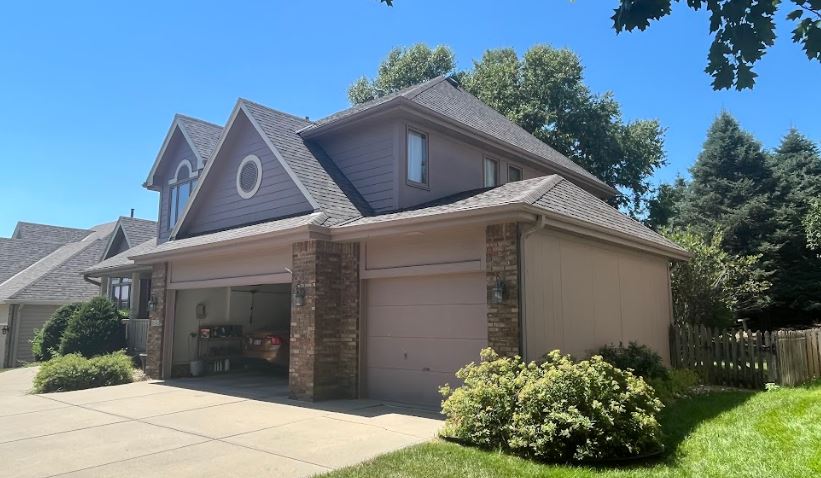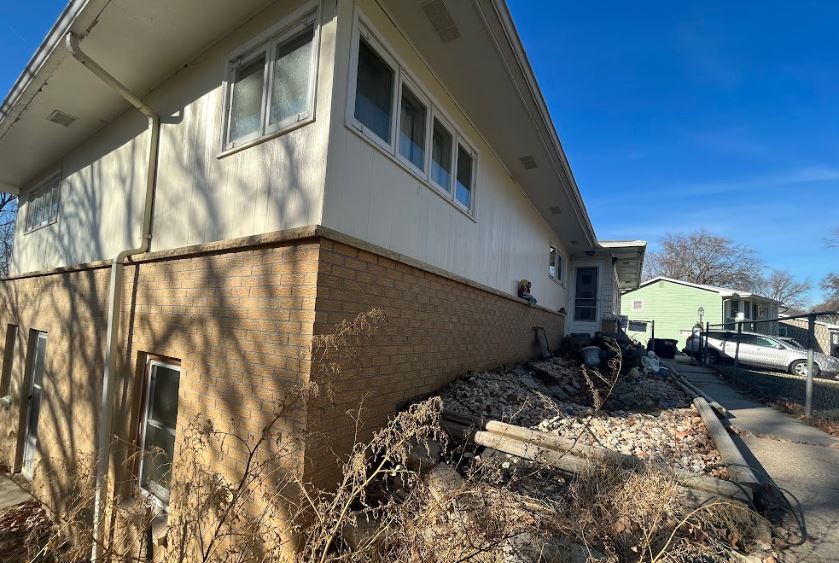It's a pretty common situation - you made some renovations or additions to your home, but you didn't get the right permits from the city or county first.
Now you're thinking about selling your house, and you're wondering how that unpermitted work is going to affect things.
The good news is that you can sell a house even if there's some unpermitted work done.
But there are a few caveats - which I’ll explain in this post.
And I’ll go over everything you need to know about selling a house with unpermitted work.
Can You Sell A Home With Unpermitted Work?
Yes, you can sell a home that has unpermitted work as long as the city or county hasn't given you any kind of violation notice, fines, active red tags or order to fix the issue.
If they've already cited you or told you to correct the unpermitted work, you'll need to take care of that first before trying to sell.

You won’t be able to sell the house without resolving them.
Other than that, the unpermitted work itself won't stop you from selling the home.
But you absolutely have to let potential buyers know about it.
Disclose, Disclose, Disclose
You are legally obliged to tell potential buyers about any unpermitted work.
You have to inform them through the proper disclosure paperwork.
If you don't disclose this information, you could run into legal troubles down the road, so you must be honest and open about it from the start.
Also Read: do sellers get a copy of home inspection
Make a detailed list of all the unpermitted work and disclose it.
How Does Unpermitted Work Affects Home Value
Unpermitted work can affect your home's value in different ways.
How much it impacts depends on a couple of key things:
Quality Of The Unpermitted Work
Who did the unpermitted work and how well it was done can make a big difference in how it affects your home's value.
If you hired a good contractor who used quality materials and did the job right, following standard construction practices, then it won't ding your home's perceived value too much.
Buyers will see that even though it wasn't permitted, it was still professional-grade work.
However, if the unpermitted renovations were more of a DIY, that could be an issue.
Shoddy workmanship, corners cut, subpar materials used - things like that can make the unpermitted work look more like a liability than an asset.
Also Read: contractor failed inspection who pays
Buyers may get turned off thinking they'll have to redo or repair that work down the line.
Extent Of The Unpermitted Work
The extent or scale of the unpermitted work plays a role too.
If we're just talking about something pretty small, like swapping out a water heater without a permit or updating some light fixtures, that likely won't affect much.
But if the unpermitted work was much more extensive, like converting basement space, that's going to have a way bigger impact.
Major unpermitted work represents a bigger question mark and risk factor in their minds.
Square Footage Changes
If you added extra square footage to your home without getting the proper permits, this can really affect the home's value in a negative way.
Unpermitted additional square feet may not even get factored into your home's appraisial - even if the work itself was well done.
This could mean leaving a lot of money on the table.
This is a situation where trying to get the work properly permitted and recorded can make a lot of sense from a financial perspective.
Location
The location has a big impact too.

Unpermitted work can make a big difference in areas with high real estate value.
For example, a square foot in San Francisco is worth around $5000! The extra square footage can add a lot of value if it’s permitted.
But if it’s not, it'll not be counted in the property’s official square footage.
Getting "After-the-Fact" Permits
And that leads us to the option of getting what are called "after-the-fact" permits from your local building authorities.
Basically, instead of going through the normal permitting process before doing the work, you're working with the city or county to get the unpermitted work inspected, approved, and permitted after-the-fact once it's already completed.
Also Read: Mandatory Fixes After a Home Inspection
Now, this does involve some fees, potential fines or penalties, and obviously more bureaucratic hassle than just getting permits ahead of time like you're supposed to.
But if the unpermitted work was pretty major, especially involving added square footage, going through after-the-fact permitting can be huge.
Plus, the lenders and buyers tend to feel way more comfortable.
So do an inspection and make sure it's all up to code, and then get "after-the-fact" permit.
Why You Should Address County Citations
If your unpermitted work hasn't flown completely under the radar and you've probably received some kind of notice from your local authorities.
They will ask you to either correct or remove that work.
You have to take care of that before you can reasonably try to sell your home.
Pending code violations, fines, liens, things like that are a huge red flag.
Buyers and lenders will want to see any of those outstanding issues fully resolved and cleared before moving forward.
Also Read: Selling A House With A Tax Lien
Fail to do that, and you could run into problems even getting mortgage financing approved for the buyers, or other roadblocks that grind the whole sale to a halt.
Wrapping Up
At the end of the day, whether you should go through the process of getting permits for the unpermitted work will come down to weighing the costs against the potential benefits.
If the added value to your home and the peace of mind is worth the costs and hassle, it could be a good idea.
But if the unpermitted work is relatively small, just disclosing it fully to buyers and selling the house as is might be the more practical choice.
Talking to an agent and contractor can help you figure out what makes the most sense.

